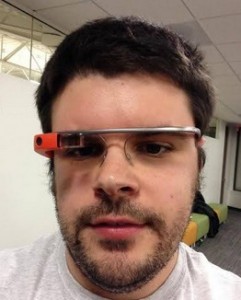This time in the “People in Testing” series, I had the chance to interview Ryan Arsenault who is a Community Manager at uTest. Ryan is working with more than 175,000 software testers from around the world and he has a different view of the software testing industry. I am really glad to get the chance to interview him and to provide his answers in this post to get an idea what other people think of software testers.
Daniel: What is currently your biggest challenge at uTest?
Ryan: I would say that like with any community — especially with ours in how fast we’ve grown with over 175,000 software testers now — the biggest challenge is always providing the content and context to keep people engaged.
How do you match paid projects to the testers strengths, interests, and often devices while simultaneously providing them with opportunities to expand their professional network and career? It’s a daunting challenge, but one that our team is doing an amazing job of, along with our uTester moderators. It also helps that we have some exciting things in the works for later in the year that will continue to allow us to engage at a deep level with our testers as we scale as a community.
You are working together with software testing experts. Have you ever considered to become a software tester?
I’ve never considered becoming one because they’re so much better at it than I ever could be — as they say, I should ‘stick to my day job.’ That being said, working with them for almost two years now at uTest has given me a deep appreciation for what software testers do everyday.
First off, testers have to be unbelievably creative and nuanced to find some of the mission-critical bugs that they find. Sure, I’ve seen a lot of surface, low-level GUI bugs in testing cycles at uTest, but the ones that come up that we deem as “exceptionally valuable” take quite a bit of persistence, thinking outside the box, and creativity. Coming from a Communications background which requires a great deal of creativity, too, it’s a quality I instantly gravitated toward.
Secondly, again while I don’t think I’ll ever cross over into a testing role, I can totally identify with the fact that testers are sometimes the “underdog.” I’ve always been the one behind the scenes doing the “quiet” work, so I love that testers are a scrappy, hard-working bunch of underdogs doing unbelievably important work.
Where do you see the software testing industry in the next years? What are upcoming challenges?
From what I’ve seen in my own community, testers will benefit the most from learning automation skills at some capacity — automation is going to be even bigger within the next couple of years. “Manual” testing will never go away completely, and shouldn’t, as automation can’t “think” and is only as good as the script behind it — it doesn’t have the “touch” of a human with creative ways of finding deep-rooted issues.
I think the biggest challenges will continue to be one of the biggest ones today plaguing testing teams — a lack of resources, time and money. Testers often are last to receive all of these things, and until there’s a colossal shift in the organizational mindset of how important testing really is, testers will continue to be challenged daily with stretched resources and a lot of time spent on non-testing activities.
Additionally, as is true with many jobs today regardless of where you are in, keeping current with your skillset (this is where automation skills come in) for peace of mind/job security is always going to be a challenge for a tester regardless of what year it is.
And if we’re talking organizationally, the Internet of Things is going to bring a whole host of challenges for testers and developers alike, with a whole new ecosystem of apps being created.
What kind of test automation tools are used most by the uTest community?
We have a Tool Reviews section of uTest where our testers sound off on the testing tools that help them out the most in their day jobs — or the ones that have given them the most headaches.
In terms of automation tools, the Selenium framework is still the gold standard for our testers. Others popular within uTest though include Test Studio, SoapUI and HP Quality Center.
What do you think is the most important skill software testers should have?
Having a voice. From what I’ve experienced within my own community at uTest, there’s a lot of unbelievable testers that don’t even realize how much of an influence they have on the SDLC, and how much klout they can wield within an organization when it comes to quality…despite not being a developer.
And having a voice means putting yourself “out there” as a tester. You’ve done that with your blog here. Not everyone can be James Bach (a booming voice in testing) or Michael Larsen (a prolific writer!), but “branding” yourself with just an occasional blog, Tweet, or your own site to host your body of work can go a long way. There are so many testers out there. How do you separate yourself from the rest of the pack?
Ryan, thank you very much for your interview and the insights as Community Manager at uTest.
If you are a software tester and interested in exchanging with other testers from around the world I recommend to register at http://www.utest.com/.
About – Ryan Arsenault
Ryan Arsenault is based outside of Boston and is on the Community Management Team at uTest, the Professional Network for Testers, made up of 175,000+ software testing professionals. He works to keep testers engaged and informed, and empowers them to grow their testing careers through new opportunities and recognition programs. You can find him on Twitter @ryanarsenault, on LinkedIn, or on the uTest Blog.

